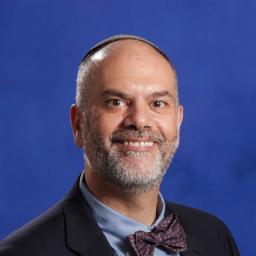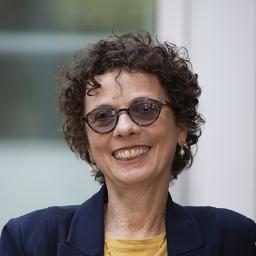With so many Jewish day schools and yeshivas welcoming temporary Israeli transfer students into their doors, we invited four schools to describe how they supported these students during this time of great stress and trauma.
Connecting to Our Community
Gisele Ellis, Program Coordinator, Bayit@Gann, Gann Academy
Gann Academy, founded by the community for the community, embraces the core value of Kol Yisrael areivim zeh la-zeh, we are all responsible for one another. This ethos became tangible this fall as we responded to urgent calls from Israeli evacuees seeking an immediate high school solution for their children arriving in Boston after October 7th.
Overnight, we created a standalone program, “Bayit@Gann,” to absorb Israeli students at no cost to families. We quickly identified four staff members and volunteers to manage Bayit@Gann: a professional program manager; an experienced Israeli professional social worker to serve as the primary liaison/advisor to the students; a parent volunteer to lead fundraising; and a parent volunteer to act as a local contact for navigating the transition to Boston, including appropriate clothing for Boston winters, a place to celebrate Thanksgiving, and so much more. We also invited a few recent graduates, temporarily back from gap years in Israel, as madrichim for the program.
The initial concept involved partial integration into the Gann program during non-academic times, complemented by group and individual social-emotional support, tutoring for existing Israeli classes, and more. We did not know what level of English language fluency students would have, how much emotional support they would need, or how many kids would arrive. We anticipated as many as 15-20 students might join and tried to imagine a program that could meet their needs. An unused office became the Bayit@Gann Lounge—the base camp for our program and a safe home for our students to gather with each other and with friends.
We conducted intake meetings with families to assess the needs and aspirations of both parents and students. Most incoming students possessed strong English skills. Parents prioritized a safe environment, a regular schedule, and opportunities for socializing. Many students were concerned primarily about keeping up with their Israeli schoolwork, leading us to hire an Israeli high school math teacher, also displaced due to the war. She assisted students during designated work blocks and coordinated with their teachers in Israel once schools reopened.
Ten days after hiring our program leads, we welcomed our first six students. Collaborating with Gann’s grade-level deans, we established a peer mentor program for companionship and assistance in navigating the school. Our American students soon started inviting their new friends to join their classes. Bayit@Gann morphed so students could now attend three to five Gann classes instead of one or two, with fewer work blocks and less group time. Flexibility was crucial due to the time difference, enabling students to connect with friends and family in Israel during the school day. Requests for specific classes and access to facilities during free periods were accommodated, showcasing the remarkable flexibility and warmth of our faculty and staff.
Speaking for the group in front of the whole school, one student said, “we learned that ‘We Stand with Israel’ are not just words.” As students begin to return home and others transition to full-time Gann students, Elazar Waldman, program director and social worker, emphasized the profound connection achieved in only two months. “For Bayit@Gann participants, this has been a life-changing experience,” reinforcing that “as part of the Jewish people, they are not alone, even in times of hardship.” The dedication to taking extraordinary action for our beliefs, the sense of community, and the positive impact Gann has on the world are lessons that will stay with them forever.
Beit Yisrael
Jason Feld, Head of School, Akiba Yavneh Academy
Kol Yisrael areivim zeh ba-zeh, all of Israel is responsible for one another, is a value often heard in the classrooms of Akiba Yavneh Academy. Shortly after the October 7th Hamas pogrom, AYA was called upon to quickly put that value into practice as we began receiving word that Israeli families would be seeking temporary shelter in our Dallas community.
In all of my initial discussions with board members, faculty and school administrators, we never questioned whether we would take in these Israeli students, rather, how we can best serve the needs of these Israeli children. The support we received from Prizmah provided valuable guidance on a host of unique issues ranging from the nuts and bolts of registration to some of the social-emotional and academic challenges of successfully absorbing displaced Israeli children into our school. Issues we needed answers to included, How long will students remain in Dallas? What is their level of English proficiency? Is the primary goal for the students to keep up with their academics, and if so, how do we sync the curriculum they receive at their Israeli schools with our curriculum?
Our leadership team unanimously decided to build a new program custom tailored to the individual needs of each and every Israeli student. With that, AYA’s Beit Yisrael program began taking shape. Our first decision was to hire a coordinator to manage the various administrative, logistical, and programmatic details of Beit Yisrael. Volunteers with specific skills from within our school community reached out to get involved.
Within a week of our initial meeting, Akiba Yavneh Academy enthusiastically welcomed 18 temporarily displaced Israeli children, ranging in age from 2 to 16, to Beit Yisrael. Every school day, Beit Yisrael students learn from an ESL specialist; they receive math, science and Judaic studies instruction taught by subject experts who are all fluent in Hebrew. Additionally, the Jewish Federation of Dallas, in partnership with Jewish Family Services, provided Beit Yisrael with a Hebrew-speaking counselor to serve the social-emotional needs of the children and their parents. Beyond the academics, Beit Yisrael students join their AYA peers for daily tefillah, lunch, art, and PE, and they attend all school assemblies and activities.
By designing a program around the individual needs of our Israeli children, AYA is able to meet and indeed, exceed the expectations of our Israeli families. Every day, Beit Yisrael students are having meaningful experiences where they are learning, socializing and having fun in a safe, supportive and welcoming environment. We began the school year with a special focus on three Cs: Commitment to Excellence, Character, and Community. Having the zechut, privilege, to realize our core school values in service of Am Yisrael has positively energized and deeply impacted our entire school community.
May our humble efforts in Dallas contribute to the strength and unity of Am Yisrael, and may we merit the restoration of security in Israel and the swift and safe return of all captives currently held in Gaza. May our efforts in achdut, unity, continue to grow from strength to strength, Am Yisrael Chai.
A Home Away From Home
Renee Klyman, Director of Admissions, Ben Porat Yosef
At Ben Porat Yosef, our commitment to fostering a strong and supportive community is exemplified by our proactive efforts in assisting displaced Israeli families who have left Israel due to the recent war that erupted after October 7th. With a deeply ingrained Zionist mission and a genuine dedication to preserving Hebrew language and culture, our school has become a natural haven for those seeking refuge and connection.
One of the unique aspects of BPY is our true Hebrew immersion program, which not only provides a rigorous academic environment but also serves as a cultural bridge for families in transition. This program has proven invaluable for the Israeli families who have recently joined or re-joined our community, offering a familiar and nurturing space for their children to continue their education seamlessly.
Moreover, our school is proud to boast a staff that includes the largest number of shlichim in North America on a mission from Israel. These dedicated individuals bring an authentic connection to Israeli culture and a firsthand understanding of the challenges faced by families affected by the conflict. Their presence at BPY further facilitates the smooth integration of new families into our close-knit community.
The decision for Israeli families to choose BPY as their educational home away from home was an easy one, given our unwavering support for Israel and the strong ties our school maintains with the country. We have been fortunate to welcome back seven BPY family members who had either recently left to make aliyah or embarked on temporary journeys, and it brings us immense joy to open our arms and hearts to them, ensuring they find solace and continuity within the BPY family. As we continue to navigate these challenging times, our commitment to providing a warm, embracing environment for additional displaced families remains steadfast, embodying the true spirit of community and shared purpose.
Providing a Safe Educational Space for Our Israeli Students
Lydia Levin, Director of Marketing and Communications, Bialik Hebrew Day School
From the start of the war in Israel, we knew it would have an impact on our school; how big an impact, and what shape it would take, we didn’t know. But it soon became clear that whatever we did to help Israeli families coming to Toronto, we would be guided by our mission, our core Jewish and Zionist values, and an approach that put families’ and students’ needs first.
As the inquiries began to pour in, our administrative team banded together, creating a process to admit students in large numbers. We devised a plan to enroll students for a four-week short-term stay. We created an abbreviated application form and an adapted admissions process, and began communicating with the many families who had inquired.
Members of our admin team stepped up to interview and welcome Israeli families. While we did not require payment, in line with the other Toronto Jewish day schools, we accepted any weekly contribution based on a suggested cost-based rate. At the same time, we were liaising with the Toronto UJA, who generously subsidized each student.
To date, Bialik has had some 180 inquiries and has enrolled 98 students at our two branches—over and above our usual 1,500 students.
The entire Bialik community participated in the effort to provide a soft landing for the Israeli students and their families. The administrative team focused on the overall planning and implementation; teachers willingly and warmly welcomed students into their classes (more on that below); our IT Department set up students in Grades 3 to 8 with laptops and access to our online learning systems (SeeSaw and Google Classrooms); students were overjoyed to buddy-up with the new students; parents invited families to Shabbat dinners, helped them with grocery shopping, collected warm clothes and found a myriad other ways to help families feel welcome. Board members along with retired administrators and teachers gave, and are still giving, invaluable volunteer time to support the visiting students in their academic and social-emotional learning. A past principal came back to help with admissions.
In our classrooms, we aimed to support the new students’ needs with as much dedication, detail and empathy as possible. The first aim was to provide a welcoming and safe space, caring for their social-emotional needs, for children who had been pulled from their homes, some who had come to Canada with one or both parents, and others who had been sent with older siblings to the care of Canadian relatives. After that came academic and linguistic support.
Ten dedicated volunteers are giving their time to support the teachers and work with the students, in small groups as well as individually, to address their individual needs. Students have been supported in a number of ways:
- We’ve dedicated Hebrew-speaking spaces where students can interact with each other and feel heard and understood. Activities in these spaces have included gym, small group time, and playing games together.
- Teachers and volunteers were assigned to provide one-one-one social-emotional check-ins with the students, aiming for this to be as organic and supportive as possible through conversations, greetings, games, and in small groups.
- Our Shinshinim at both branches took time to develop relationships with students and created opportunities for friendly support.
At this stage, two thirds of the Israeli students have returned home, and many will follow; a few are seeking long-term enrollment, and we are still taking in a few new students.
Reflecting on this endeavor almost two months in, we are aware that it has depended on unprecedented teamwork and generosity of spirit in our community. From the many beautiful messages received from parents, we have done what we intended in providing support to our Israeli brothers and sisters.






